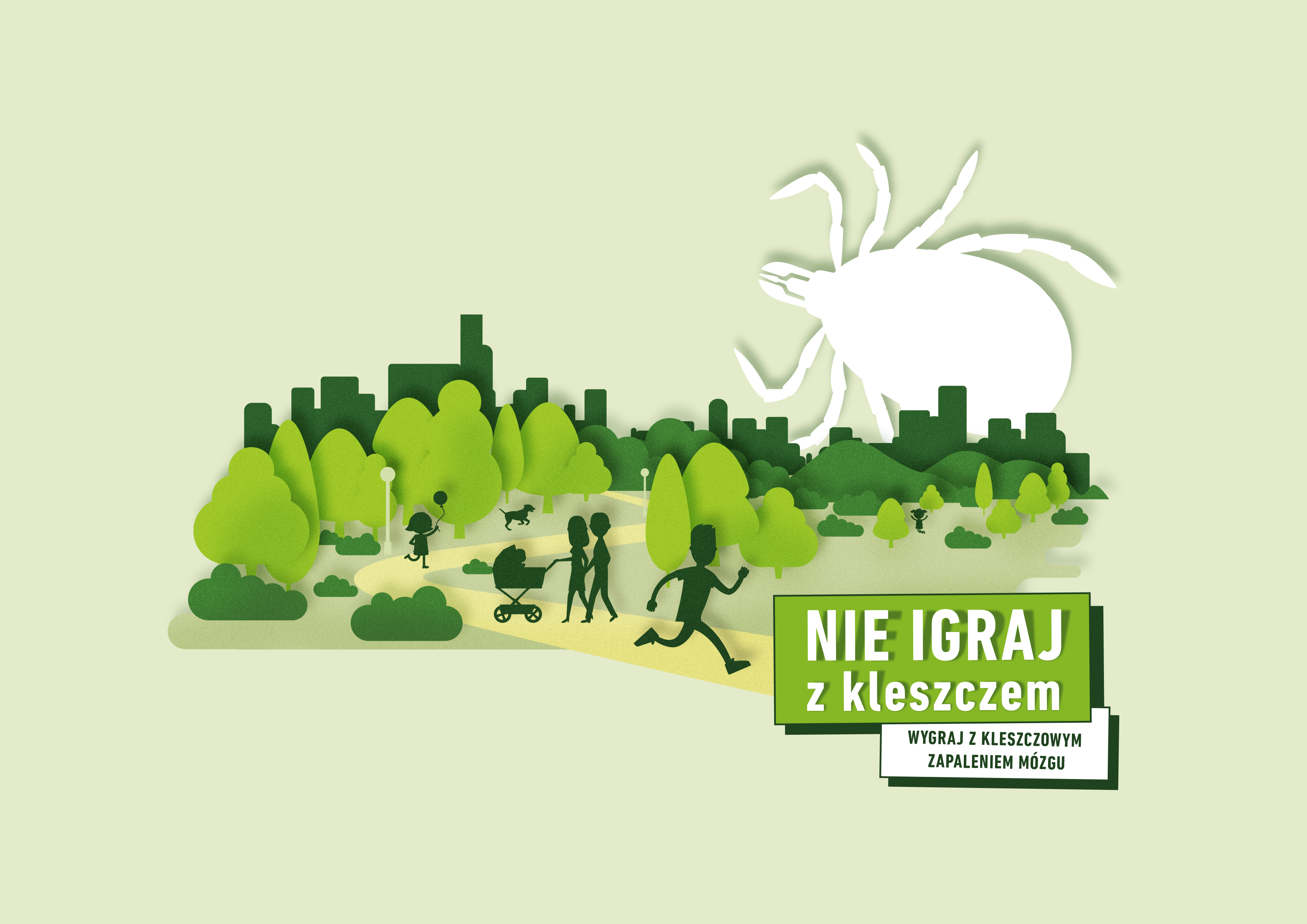During a coronavirus pandemic, other viruses that can also be dangerous to our health should not be underestimated. One of these is, transmitted by ticks, the tick-borne encephalitis [TBE] virus. The disease is dangerous and leads to complications. It can only be protected against by vaccination.
The COVID-19 virus pandemic has made us realise how dangerous infections caused by viruses can be. Causing dangerous infections, they attack not only the respiratory system, as in the case of SARS-COV-2 and influenza, but also the digestive system (rotaviruses), the genital system (HPV), the immune system (HIV), the lymphatic system (Ebola) or the nervous system (KZM virus). Many viruses are increasingly well managed by medicine through the possibility of effective prevention in the form of vaccination (influenza, HPV, KZM, rotavirus) or effective treatment (HIV). Despite this, for many years there has been a tendency to underestimate infectious diseases, which is evidenced, among other things, by the very low inoculation rate for the most popular virus - influenza virus (3.4 % of the population). The situation is even worse regarding the prevention of SHF (only 1% of the population is vaccinated).
Some viruses - especially those transmitted by insects or arachnids - are favoured by climate change. These changes are also beginning to be felt in Poland. Data presented in the Climate Coalition Report shows that the number of ticks carrying dangerous tick-borne diseases in our country has tripled since 2005. Between 2005 and 2014, there was a more than threefold increase in the incidence of Lyme disease (from 4 400 to more than 13 800), and in 2019 there were more than 20 000 cases. The number of people infected with tick-borne encephalitis (TBE) is also increasing alarmingly. The problem affects the whole of Europe and Poland, where there has been a year-on-year increase in cases recently.
The mild, short winter and quickly followed by spring means that ticks wake up earlier and start feeding. The warming climate is contributing to the expansion of ticks into areas not previously considered endemic for the disease.
The disease has two phases, with the first symptoms resembling flu; when the second, neurological phase of the disease occurs, hospitalisation is usually required. In Poland, only the most severe cases requiring hospitalisation appear in official statistics, and there are approximately 200-350 cases per year.
According to data from the European Centre for Disease Prevention and Control (ECDC), in most countries in close proximity to Poland, the incidence of MSF is many times higher (Lithuania: 16.54 and Latvia 9.51 per 100,000 population). In the Czech Republic, a country with a population four times smaller than Poland, in 2018. recorded a record number of infections - 712 cases. If the incidence of the disease were similar in our country, the number of infections in the Lower Silesian Voivodeship bordering the Czech Republic alone would be around 195 - meanwhile, that is how many cases were reported in 2018 in official statistics across Poland.
Experts agree - we do not know what the true scale of the cases of NGS is, as the data are clearly underestimated. For most of the reported cases of viral infections of the nervous system in Poland, it is not known which virus caused the disease. One of the most important reasons, as with many other infectious diseases, is the difficult access to the tests used in the diagnosis of SHB.
There are no drugs to stop the virus multiplying and spreading in the body. If the STI virus enters the body, the only hope is in our immune system. If it fails to fight off the SHF, usually after 7-14 days (sometimes this period can extend to 28 days), the first symptoms of infection appear. They are reminiscent of the flu: fever, headache, muscle aches, joint pains (the so-called summer flu) are the most common. If the body cannot cope with the infection at this stage, a few days after the flu-like phase is over, the virus penetrates the nervous system. The second, neurological form of the disease begins. If the neurological form of the disease occurs, hospitalisation is required. There is no drug that can be used to halt the progression of the disease. Only symptomatic treatment is used.The only effective way to prevent the disease is vaccination. Children can be vaccinated from as early as 1 year of age; there is no upper age limit.
Despite campaigns to raise awareness of the risks of TBE and its complications, most people still underestimate the problem, believing that it does not affect them. In order to raise awareness of the danger of tick-borne encephalitis, 30 March was declared the National Tick-Borne Encephalitis Awareness Day (TBE Awareness Day).The educational activities carried out on that day are part of the next edition of the campaign "Don't play with ticks. Win against tick-borne encephalitis". As part of the campaign, educational and informational activities on the KZM virus and prevention options are being carried out all over Poland, conducted in the media and addressed directly to the inhabitants of selected cities. There is also an educational website www.kleszczeinfo.pl, which provides a compendium of knowledge about ticks and their dangers, advice on how to deal with them, and useful information for people leading active lifestyles in green areas or going to areas at risk of contact with ticks.
The campaign is organised by the Institute for Patient Rights and Health Education, the Aby Żyć Foundation and Pfizer. The Chief Sanitary Inspectorate is an honorary patron of the campaign.

